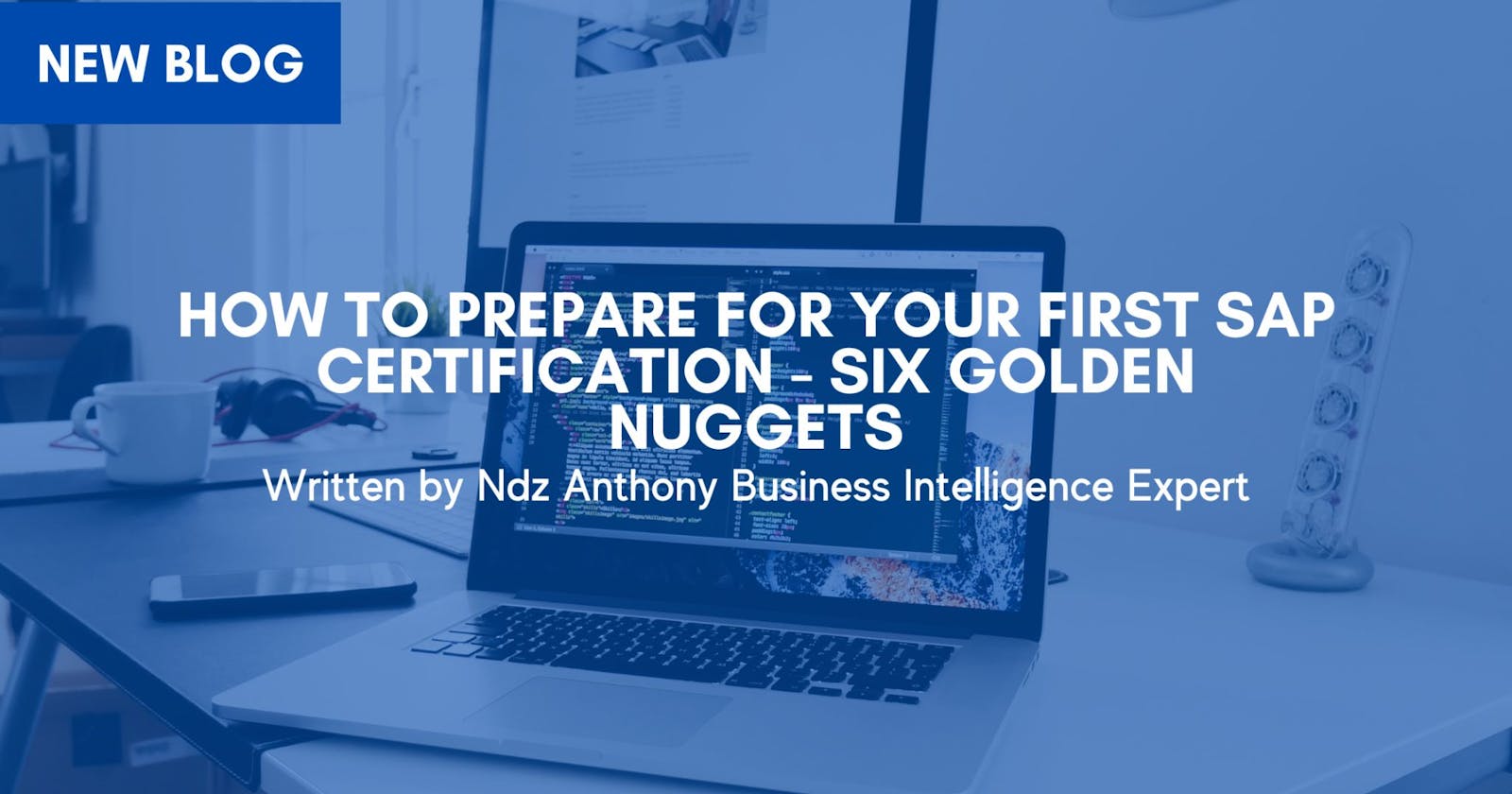6 Golden Nuggets You Need To Know When Preparing For Your 1st SAP Certification
What is a Professional SAP Certification?
According to Wikipedia, a professional certification, also known as trade certification, is "a designation earned by a person to assure qualification to perform a job or task." Likewise, SAP certifications are created to serve as a yardstick for assessing an SAP consultant's skills.
From foundational to intermediate to advanced levels, sap certification exams help to validate consultants who aim to become trusted experts within SAP's ecosystem.
What Are The Benefits of getting SAP-Certified?
There are a couple of reasons you might want to get certified (if you still need to).
Having a professional SAP certification:
Can drive career growth and increase your earning potential as a consultant.
Helps establish credibility and boosts your confidence: Getting sap-certified gives you "that confidence" while carrying out your duties. Not just you but also your employers; it provides validation and proves your competence.
Provides context related to your skillset: SAP certificates are highly recognized. By getting SAP-Certified, you earn an on-demand accreditation of excellence showcasing your specific skills.
Sets a bar for comparison: Having an SAP certification can help stand out in the relatively crowded talent marketplace.
How To Prepare For Your Next SAP certification - (Six Golden Tips)
We have covered the what and why of SAP certifications. In this section, I'd like to share tips on preparing for and how to ace your next SAP certification. As a 5X certified Associate SAP consultant, I have learned a few tips and tricks to preparing and acing SAP certs.
Research Your Certification
SAP has been around for over 40 years, with many variations of its professional certifications across different modules. Older certification exams might retire and replace newer versions of the respective exam. Before you decide on booking an SAP exam, you must do some research to avoid choosing the wrong certification.
Ask yourself the following questions before booking your SAP exam:
What is the difficulty level of my exam - associate, specialist, or advanced?
Are there any prerequisites?
Is my certification of interest still valid? - See the list of valid SAP certifications here.
Go Ahead and Book Your Exam: After you have done your research and are aware of all the necessary prerequisites, you might as well go ahead and lock it in by booking the exam.
This subconsciously helps you stay focused and committed to preparing for the exam.
Go Ahead, Book The Exam!
After you have done your research and are aware of all the necessary prerequisites, you might as well lock it in by booking the exam. This subconsciously helps you stay focused and committed to preparing for the exam.
Create A Study Schedule
Our last article highlighted "studying" as one of the critical skills every SAP consultant should master, especially when your professional certification is in view.
Here are some questions you might want to ask:
What is my study pattern? Have I reviewed the exam's objectives? When is my focus time, and how much material do I have to cover?
Based on the exam date, how much time do I have, and how often do I need to study?
The amount of work you put in and how strictly you adhere to your schedule will play a massive role in your readiness for the exam.
Leverage The Appropriate Learning Resources
I have successfully aced four professional SAP exams, but only with some losses. I recall one of my technical exams I bombed, although I thought I was prepared. I had studied BUT relied on the wrong learning resources You should use the right learning resources when preparing for any SAP Professional exam.
Some of these resources are:
The SAP Learning Hub: SAP Learning hub is a digital learning solution that assists learners in building and expanding their skillset.
-- If you have access to the SAP learning hub, log on and input your certification exam code in the search bar. You will gain access to materials, resources, and learning journeys associated with your exam.
Practical Experience: Before taking your exam, it's always better to have hands-on experience with those concepts, t-codes, and processes. It helps strengthen muscle memory and enables an overall grasp of the learning objectives.
Join a learning community: You can leverage SAP learning rooms on the learning hub and general LinkedIn or Open SAP groups related to your cert exam.
Plan, Plan, Plan.
SAP exams are often remotely proctored. Visit the sap learning hub beforehand and install all necessary software to avoid the last-minute rush.Some of your concerns should be:
Have I revised the technical requirements on the SAP certification exam hub?
Is my laptop functional?
Do I have a working headset, a quiet space to take my exam, power supply?
Revise With Practice Questions
The saying goes - "There is nothing new under the sun." The same applies to exams in the SAP world, except if it's a newly released exam.
For revision purposes, It's helpful to attempt past test questions to get a feel of what the exam will be like. You can find sample questions for your exam in the certification hub. Alternatively, you can purchase from other trusted sites.
Wrap-Up & Additional Resources

The SAP Consulting space is one for professionals. Getting certified is a way to validate your expertise to earn the trust of your clients and potential employers.
For some more helpful FAQs and resources, you can explore the links below for more information:
Publication: ERPfixers


